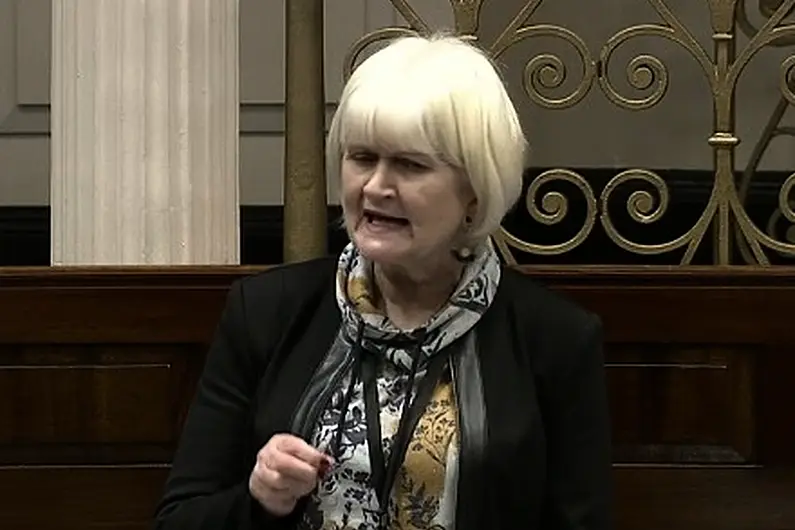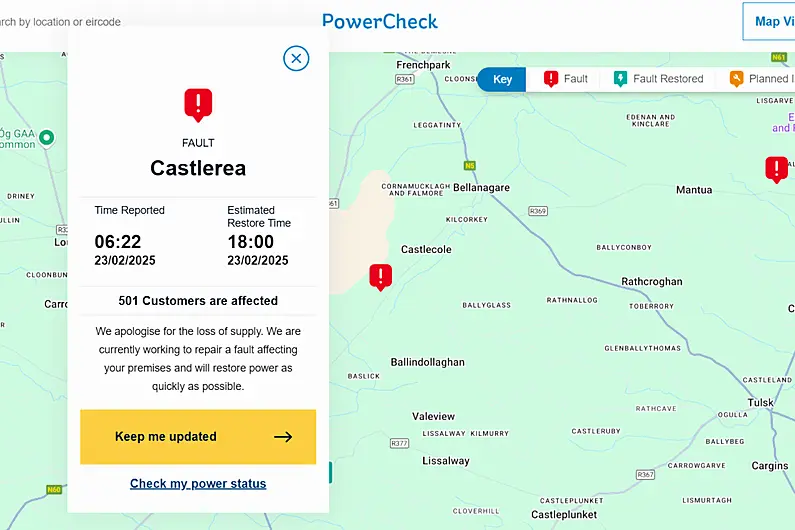A Leitrim youth who had “a miraculous recovery” from severe brain and spinal injuries sustained in a road traffic collision died two months later in hospital from what doctors described as an “exceptionally rare” medical event, an inquest had heard.
Ryan Doyle (19) from Cornacreeva, Ballinamore, Co Leitrim, was a back seat passenger in a silver Volkswagen Golf which failed to take a bend on a road at Drumreilly, Ballinamore on September 17, 2016.
An inquest into Mr Doyle’s death heard he suffered major bleeding over two months later while a doctor was removing a tube from his airways in Beaumont Hospital on November 22, 2016.
Mr Doyle went into cardiac arrest and died a short time later in an operating theatre.
A sitting of Dublin District Coroner’s Court last week heard that Mr Doyle was found brought by ambulance to Cavan General Hospital and subsequently transferred to Beaumont Hospital in Dublin because of the severity of his injuries.
Consultant neurosurgeon, Stephen McNally, said scans had shown severe abnormalities in the patient’s brain, while he also suffered a fracture of the spine as well as significant injuries to his lungs.
The inquest heard two operations to remove a piece of glass from his lungs were unsuccessful.
Mr McNally said Mr Doyle had done “far better and extremely well” than medical staff had predicted on his admission to hospital.
“For such a severe injury, he was breaking all the rules,” he remarked.
Mr McNally said it was planned that the patient would have gone to the National Rehabilitation Hospital in Dún Laoghaire to recover after being discharged from Beaumont.
Solicitor for the Doyle family, John McNulty, also observed that his relatives believed he was making “a miraculous recovery.”
Mr McNally said he had only ever seen a patient die in similar circumstances once before.
The inquest heard a tracheostomy – an opening in the neck to allow a tube to be inserted in the windpipe – was performed on Mr Doyle in order to take him off a ventilator.
A consultant anaesthetist, James O’Rourke, said the bleeding which the patient suffered while the tube was being removed could have happened at any time.
Cross-examined by Mr McNulty, he expressed confidence in the ability of the doctor who had removed the tube and stressed the removal of the tube was a very smooth procedure that was “in no way traumatic.”
Dr O’Rourke told counsel for Beaumont Hospital, Conor Halpin SC, that what happened was extremely rare and only occurred in 7 of every 1,000 cases.
He said it was “very extensive” bleeding which resulted in Mr Doyle needing a transfusion of 14 pints of blood.
The anaesthetist said he would have expected there would have been some warning signs but there had been no evidence of any bleeding up to that point.
However, he said it must have been “on the point of happening for a period of time.”
Dr O’Rourke said all medical staff at Beaumont had done their utmost to prevent what he described as “a terrible tragedy.”
A specialist in head and neck injuries, James O’Neill, who tried to perform life saving surgery on Mr Doyle said bleeding of such magnitude was an exceptionally rare occurrence.
Professor O’Neill said he had never previously experienced such a fistula – an abnormal connection between two body parts – and could offer no explanation why it had formed and why the patient had suffered such bleeding.
Garda Kevin Jones, a public vehicle inspector, told the court that the front left tyre on the VW Golf was defective but he did not believe it was a contributory factor in the actual collision.
A forensic collision investigator, Sergeant P J Gallagher said the vehicle had struck a clay bank and two trees after it failed to take a bend on the road between Ballinamore and Newtowngore.
He described how the VW Golf, in which there were four occupants, ended up on its roof around 55 metres from its impact with the trees.
The inquest heard the car’s engine and gearbox were detached from the main body of the vehicle by the force of the collision.
Sgt Gallagher said he found no evidence of any defect with the car that could have caused the crash.
However, he was unable to calculate at what speed the vehicle was travelling at the point of impact.
Questioned by Mr McNulty, Sgt Gallagher accepted that the vehicle was probably travelling in excess of the speed limit of 80 km/h as he had safely negotiated the bend at the maximum speed permitted.
The inquest heard a urine test on the driver of the VW Golf found he was more than two times over the legal drink driving limit.
The driver, Liam Taylor (26) of Aughavas, Ballinamore, Co Leitrim was given a suspended 16-month prison sentence at Carrick-on-Shannon Circuit Court in July 2020 and disqualified from driving for 15 years after he pleaded guilty to a charge of careless driving causing death.
He was also ordered to perform 240 hours of community service in lieu of a 12-month prison term after pleading guilty to a separate charge of drink driving.
The coroner, Clare Keane, heard a post-mortem showed Mr Doyle died as a result of hypovolemic shock and bleeding as a result of a fistula between an artery and his windpipe arising from injuries sustained in the crash.
Based on the evidence, Dr Keane returned a verdict of medical misadventure.






